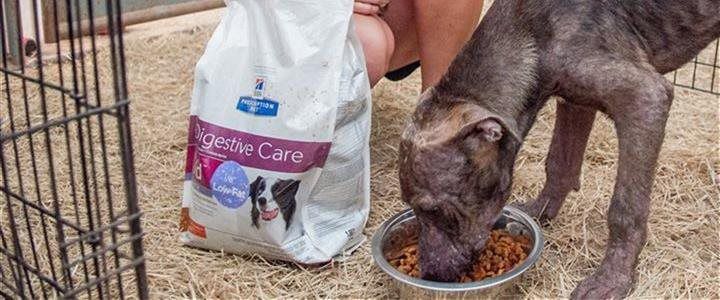(BPT) – Approximately 48 million Americans face food insecurity every day, according to Feeding America, a non-profit organization and network of more than 200 food banks. That means they, and their pets, face uncertain access to a sufficient amount of affordable, healthy food.
“People who face food insecurity should not have to sacrifice the unconditional love and companionship pets bring to their lives,” says Joann Fuller, U.S. Shelter Engagement Manager for Hill’s Pet Nutrition. “Most food pantries also accept pet food donations. So when you drop off a bag of dog or cat food, you’re helping a family in need take care of their best friend.”
Recognizing the need to provide year-round help for families and pets in need, Hill’s has partnered with VCA Charities, the philanthropic arm of VCA Hospitals, to support the organization’s Pet Food Pantry program. The program’s goal is to provide healthy, nutritious pet food to families that could not otherwise afford it. Created in 2010 in Venice, California, the program and participating pantries have served more than 1.5 million meals to pets in 30 locations across the U.S. and Canada.
“Many people feel financially tapped out after the holidays, but helping families and pets in need doesn’t have to cost a lot,” Fuller says.
Here are six simple ways you can help families in need care for their pets in the New Year:
*Have you ever bought a bag or case of pet food your pet wouldn’t eat? Consider donating it to your local food pantry.
*Many pantries provide volunteers with printed paper bags to use in gathering food donations. Ask your local food pantry for some donation bags and drop them off at homes in your neighborhood. Include a note asking for pet food donations and let your neighbors know when you’ll be back to pick up the filled bags and deliver them to the food pantry.
*Contact your local homeless shelter to find out what they need to help care for the pets of the homeless people in your community. Donating extra blankets and pet sweaters could help keep those pets warm throughout the winter.
*Shelters for victims of domestic violence may need help with temporary housing for pets of families in transition. Contact your local shelter to see if they have a fostering program that needs volunteers.
*Seniors who no longer drive may have trouble accessing regular veterinary care for their pets. Check with your local senior center or county’s department of senior services to see if you can volunteer to drive seniors and their pets to veterinary appointments.
*Contact your veterinary clinic or others in your area to see if they have programs in place to provide free or reduced-cost medical care to pets in need. You may be able to donate cash or supplies, or simply volunteer your time.
“When families are struggling with food insecurity, homelessness, financial hardship or transition, they need the unconditional love of their pets more than ever,” Fuller says. “By helping provide for pets, you’re also doing something good for the humans who love them – and that’s something you can feel good about all year long.”

